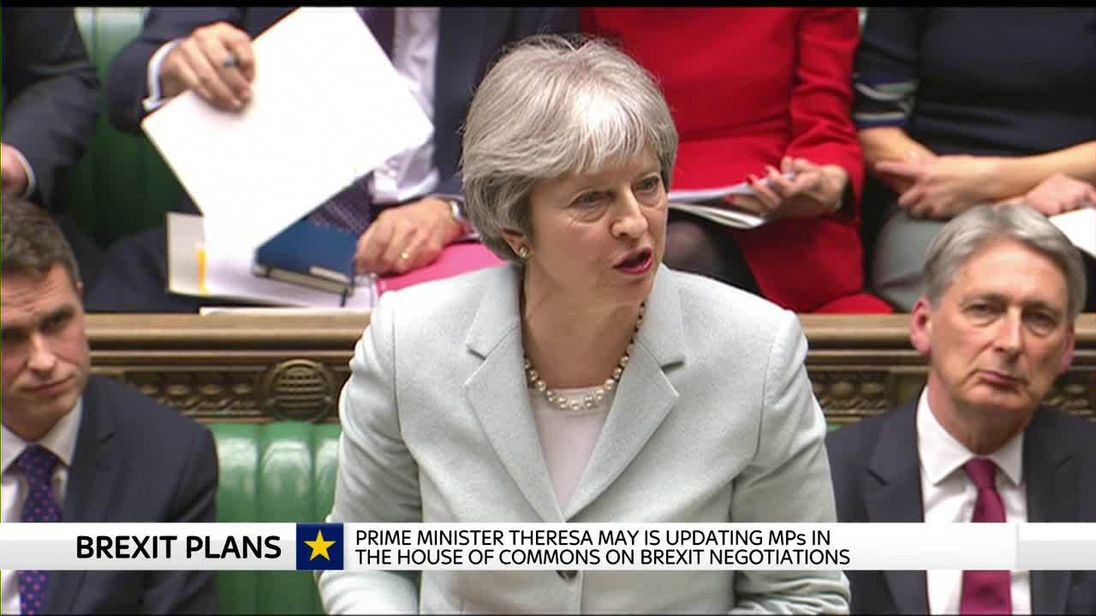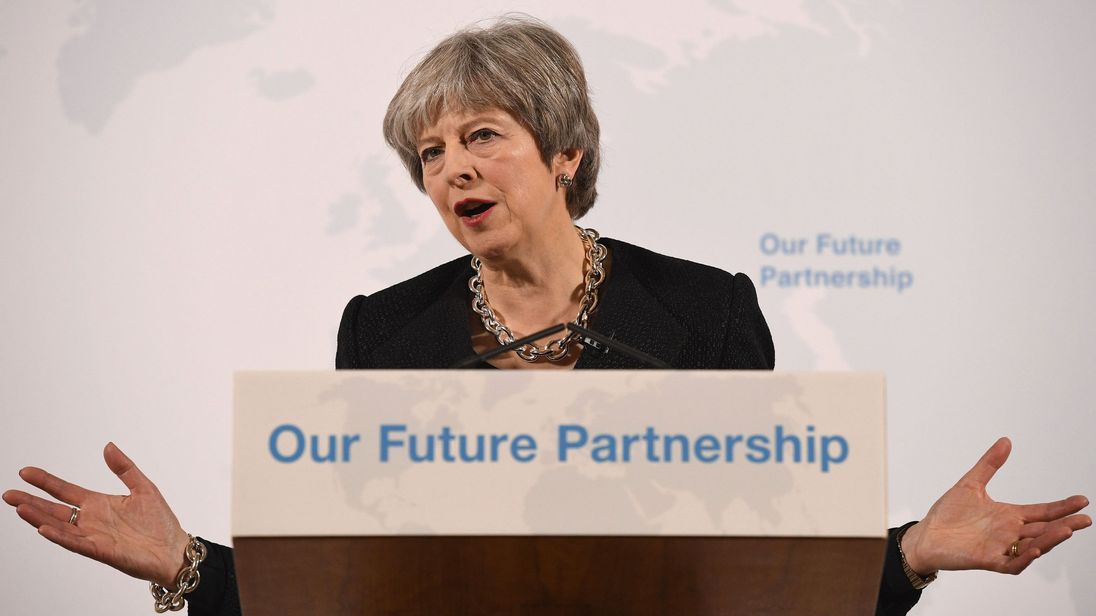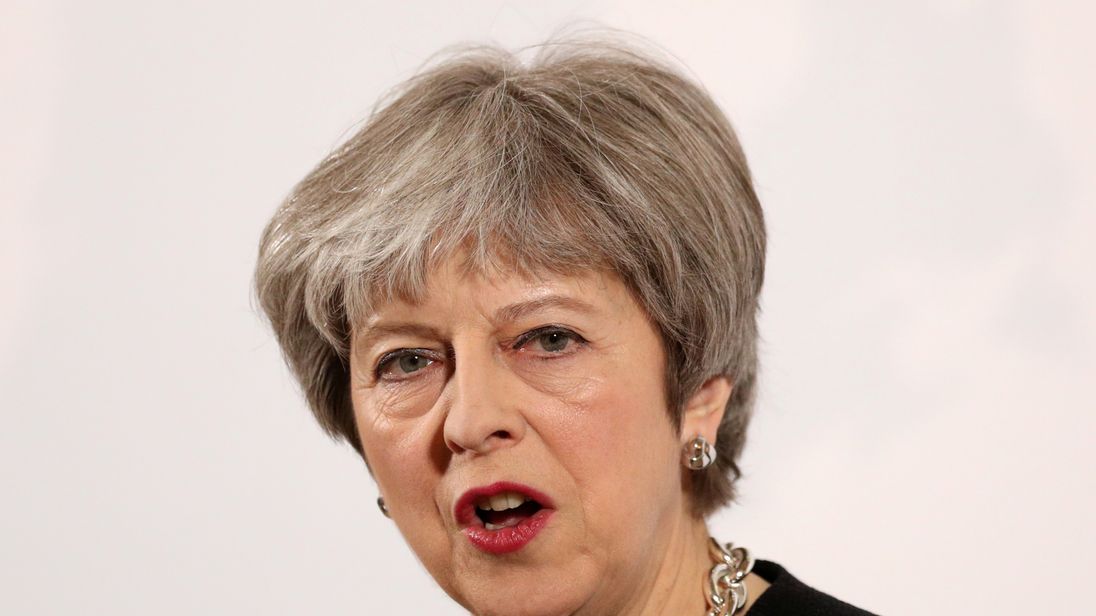Donald Tusk has said Brussels' Brexit negotiating guidelines show "we do not want to build a wall between the EU and Britain".
The European Council president struck a conciliatory – but at the same time realistic – tone on the possible future relationship between Brussels and London as he unveiled his draft guidelines for the negotiation of post-Brexit ties.
Mr Tusk said: "The UK will be our closest neighbour and we want to remain friends and partners after Brexit – partners that are as close as possible, just like we have said from the very first day after the referendum."
The guidelines are due to be rubber-stamped by leaders of the remaining 27 EU states at a summit later this month, paving the way for talks on the future relationship to commence.
But while the guidelines make clear that the EU desires "as close as possible a partnership" after Brexit, it is expected that there will be "negative economic consequences".
:: May short of 'workable Brexit solutions' – EU
"Such a partnership should cover trade and economic co-operation as well as other areas, in particular the fight against terrorism and international crime, as well as security, defence and foreign policy," the document says.
But the text continues: "At the same time, the European Council has to take into account the repeatedly stated positions of the UK, which limit the depth of such a future partnership.
"Being outside the customs union and the single market will inevitably lead to frictions.
"Divergence in external tariffs and internal rules as well as absence of common institutions and a shared legal system, necessitates checks and controls to uphold the integrity of the EU single market as well as of the UK market.
"This unfortunately will have negative economic consequences."
The guidelines warn there can be "no cherry-picking" of particular sectors, like financial services, participating in the EU's single market.

The free trade agreement on offer "cannot offer the same benefits as membership and cannot amount to participation in the single market".
And Mr Tusk said that while Brussels wants an "ambitious" FTA with the UK, it will "not make trade between the UK and EU frictionless or smoother".
He said: "It will make it more complicated and costly than today for all of us. This is the essence of Brexit."
Prime Minister Theresa May has committed Britain to leaving the EU's single market and customs union and ending the jurisdiction of the European Court of Justice.
Mr Tusk said these "red lines" meant the only possible option for a trade deal was an agreement similar to the one the EU signed with Canada.

"I hope that it will be ambitious and advanced and that we will do our best, as we did with other partners such as Canada," he said.
"I propose we aim for a trade agreement covering all sectors and with zero tariffs on goods.
"Like other FTAs, it should address services and on fisheries reciprocal access to fishing waters and resources should be maintained.
"This positive approach doesn't change the simple fact that because of Brexit we will be drifting apart."
While the draft guidelines call for zero-tariff in goods, it warns that access for services will be limited because Britain will be outside the EU and will no longer have a common regulatory and judicial framework with the bloc.

And in comments underlining the EU's reluctance to offer the kind of bespoke deal sought by the PM, Mr Tusk said: "I fully understand and of course I respect Theresa May's political objective, to demonstrate at any price that Brexit could be a success and was the right choice.
"But sorry, it is not our objective."
Responding to the publication of the guidelines, a Downing Street spokesman stressed they were a draft version which had not been formally published.
"We look forward to seeing the final guidelines when published and hope they will provide the flexibility to allow the EU to think creatively and imaginatively about our future economic partnership," they said.
More from Brexit
Interim UKIP leader Gerard Batten accused the EU of wanting to "have its cake and eat it" and said the guidelines would be unacceptable to those who voted Leave in the 2016 referendum.
Labour MP Chuka Umunna, a supporter of the pro-EU campaign group Open Britain, said the guidelines were a "direct consequence of the Government's unnecessary and reckless decision" to leave the single market and customs union.
[contf] [contfnew] 
Sky News
[contfnewc] [contfnewc]






